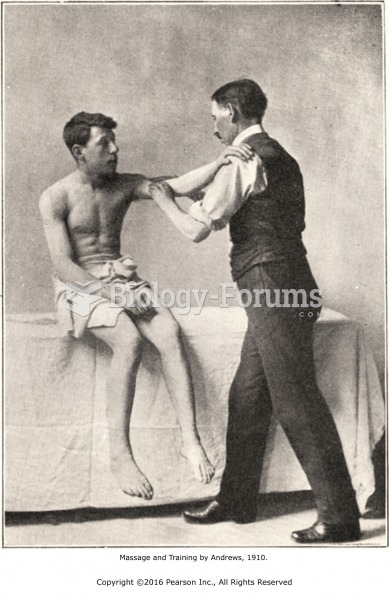Answer to Question 1
Answer: Answers should include five of the following:
You should purchase shoes specifically for any activities that you participate in for more than 3 hours per week.
Always go to a store that specializes in athletic shoes to find the best selection and the most knowledgeable salespeople.
Shop for shoes at the end of the day, when your feet are at their largest.
Wear the type of socks you plan on wearing with the shoes in order to get the best fit.
If your foot is wide or narrow, select a shoe made specifically for that width.
If you have high arches, make sure to purchase a shoe or separate insoles with lots of arch support and cushioning.
Purchase shoes made specifically for your sex. However, women with wide feet may consider trying men's or boy's shoes, which are made a bit larger throughout the heel.
Bring your old shoes with you. Shoe professionals can give you tips based on the wear pattern on your old shoes.
Try on both shoes and walk, run, or perform the types of movements for which you will use the shoe.
Don't assume you wear the same shoe size in athletic shoes as you do in regular shoes.
Answer to Question 2
Answer: Pregnant women should avoid contact sports or activities that may cause trauma or a fall. Walking and swimming are great low-impact options, but women can also dance, run, or hike. Pregnant women can still perform resistance exercises. They should focus on muscular endurance exercises rather than strengthening exercises. A pregnant woman should immediately stop exercise if she experiences vaginal bleeding, dizziness, headache, chest pain, calf pain or swelling, preterm labor, or decreased fetal movement. After the first trimester, she should avoid exercises in which she lies on her back; these can reduce blood flow to the uterus.







